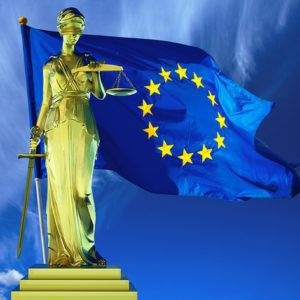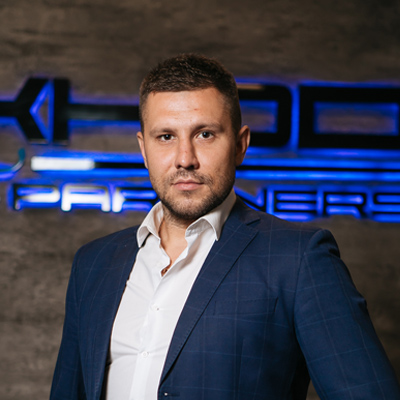
"We will protect your rights and inviolability of your honor and dignity!"
Head of criminal law practice
Expert in the field of criminal, administrative and civil law. Specializes in military crimes and crimes in the financial sector
OBJECT OF OWNERSHIP IN THE JUDICIAL PRACTICE OF THE EUROPEAN COURT ON HUMAN RIGHTS
 In recent years, Ukraine has been one of the three countries, along with Italy and Russia, in terms of the number of complaints to the European Court of Human Rights (hereinafter referred to as the ECHR). According to statistics published on the official website of the ECHR, Ukraine ranks first in the number of complaints pending consideration (out of 96 thousand complaints, 15.5 thousand - against Ukraine).
In recent years, Ukraine has been one of the three countries, along with Italy and Russia, in terms of the number of complaints to the European Court of Human Rights (hereinafter referred to as the ECHR). According to statistics published on the official website of the ECHR, Ukraine ranks first in the number of complaints pending consideration (out of 96 thousand complaints, 15.5 thousand - against Ukraine).
More than half of all applications lodged with the Court since its inception concern violations of Article 6 of the Convention, which provides for a fair trial within a reasonable time. 58% of the violations found by the Court relate to either Article 6 (right to a fair trial) or Article 1 of Protocol No. 1 (protection of property rights).
Today, when Ukraine signed an association agreement with the European Union, an irrevocable process of adapting the norms of the current legislation to European standards is under way, the leading place among which is taken by decisions of judicial institutions. The importance of the ECtHR decision as a special type of verdict rendered by a supranational judicial institution, the jurisdiction of which is recognized by foreign states, lies in the fact that such decisions are important not only for the country in respect of which violations of human rights and freedoms have been established, but also for other states. participants. , which, based on the positive experience of the conclusions of the ECHR and examples of the implementation of such decisions, can foresee in advance possible problems related to ensuring rights and freedoms at the national level.
Over the past years, Ukraine has actively begun to use the above-mentioned practice in its legislation. The priority importance of these court decisions is evidenced by the adoption of the Law of Ukraine "On the execution of decisions and the application of the practice of the European Court of Human Rights." Article eighth and seventeenth of this law testifies to the obligatory implementation of decisions by Ukraine: "payment of compensation to the claimant must be made within three months from the moment the decision enters into the final status", "courts apply the Convention and court practice as a source of law when considering cases."
In this context, an important place is occupied by property rights, namely the object of property rights. The relevance of the research topic is that:
- The ECHR interprets this concept somewhat differently in comparison with the Civil Code of Ukraine (Art. 177);
- The jurisprudence of the ECHR plays a recommendatory role in reforming the legislation of Ukraine.
Based on the practice of the ECHR, any property can be an object of ownership. However, the concept of ownership also includes assets of private law, which by their nature are not “physical property”. These are, in particular, shares and monetary claims based on the contract. Also, the concept of "property" covers some economic benefits, such as benefits received in accordance with compulsory insurance systems. In one of its decisions, the court indicated that the concept of "property" has an autonomous meaning, not limited to the ownership of physical things.
In this regard, it should be noted that in the decisions of the ECHR, the institution of protection of property rights has received a special development, which can be defined as a departure from the real-legal concept characteristic of Ukrainian legislation. The ECHR identifies two criteria for qualifying such an object of legal relations as "property":
- Economic value. In the interpretation of European judges, the institution of protection of property rights should apply to all negotiable objects that have certain signs of economic value, regardless of their nature (tangible or intangible);
- Reality. The property must really exist, be available. The practice of the ECHR shows that Art. 1 of Protocol No. 1 applies only to real property and not to the right to acquire property. In this context, indicative is the case of Malous v. Czech Republic, where the court disagreed with the applicant that he owned the property that had been expropriated (forcibly deprived of property) from the applicant's father on the basis of the 1948 national law.
Analyzing the above two features, we can conclude that the concept of property rights is not limited to material things and contains the whole range of intangible objects from intellectual property to rights of claim. Examples are mandatory rights of claim, which are objects of private legal relations, claims established by court decisions (monetary claims against the state through tax refunds, compensation for damage in the process of administrative proceedings).
In modern conditions of development of society, there is a significant expansion of the range of objects of property rights: along with material objects, a significant number of immaterial (incorporeal) objects appear, understood as having a monetary value, but representing a property object of a non-material nature. These include objects of industrial, financial and commercial property, including information. Among the new objects of property rights, human tissues and organs are distinguished, which can be the subject of transplantation.
Summing up all of the above, we can conclude that the jurisprudence of the ECHR has become quite important in recent years and plays a significant role in the reform of Ukrainian legislation. It not only bears a certain recommendatory nature, but also expands and concretizes the spheres of relations that should be regulated by specific rules of law.
Calculate the price of assistance:
1 question
Have other lawyers handled your case?
2 question
Are you in Kyiv or Kyiv region?
3 question
Do you need legal assistance urgently?
Head of criminal law practice
Expert in the field of criminal, administrative and civil law. Specializes in military crimes and crimes in the financial sector
Other articles on this topic:
call back
during the day




